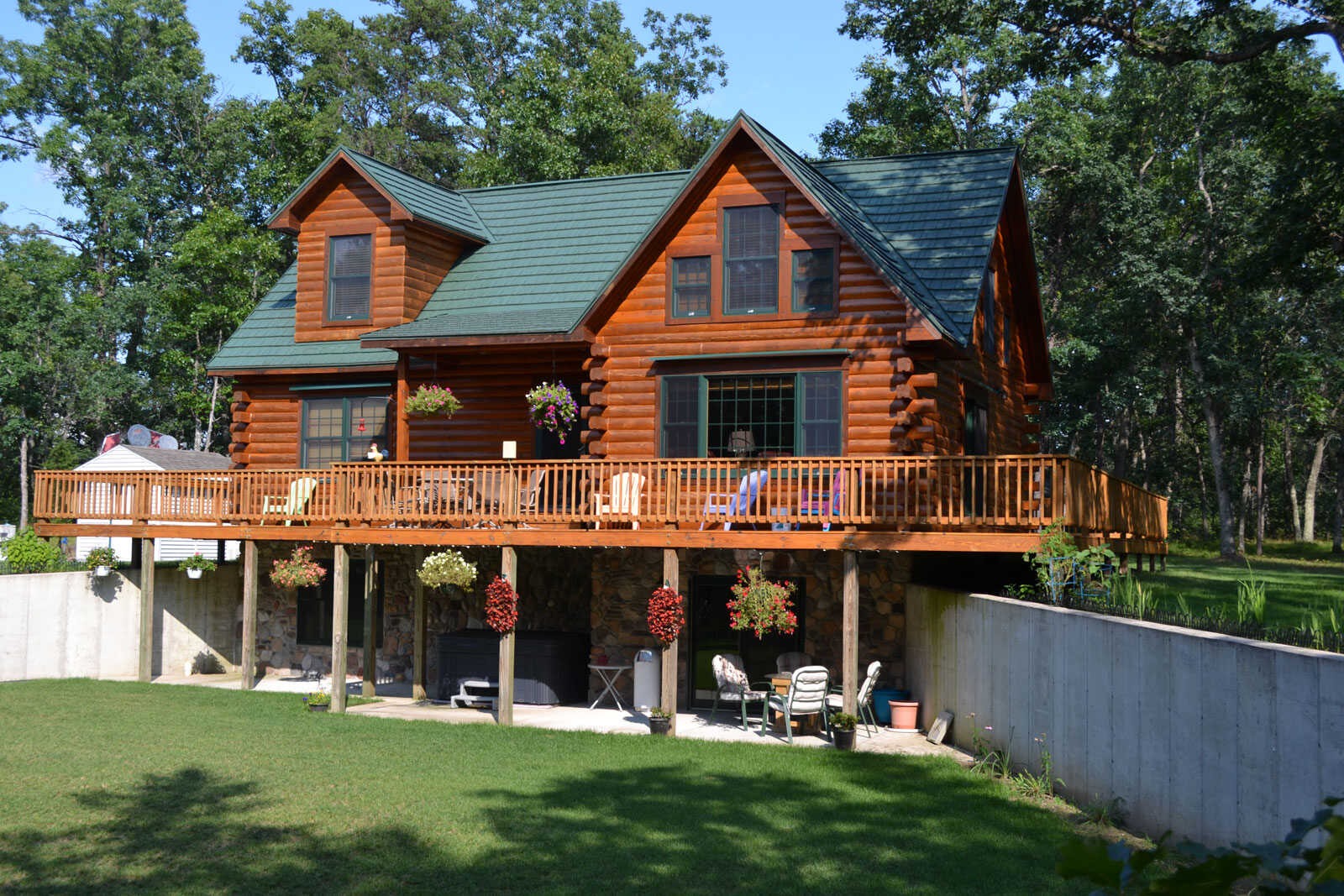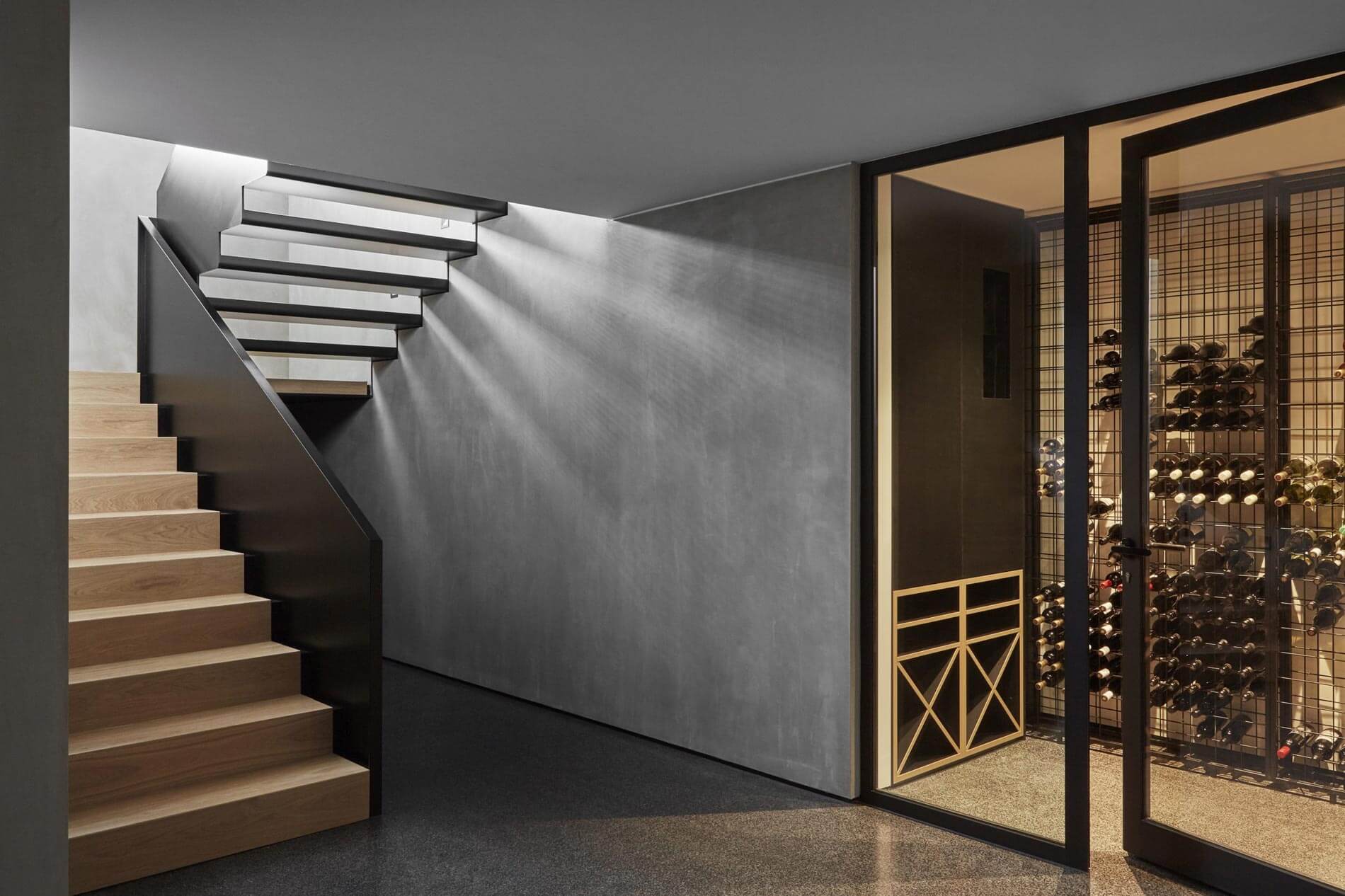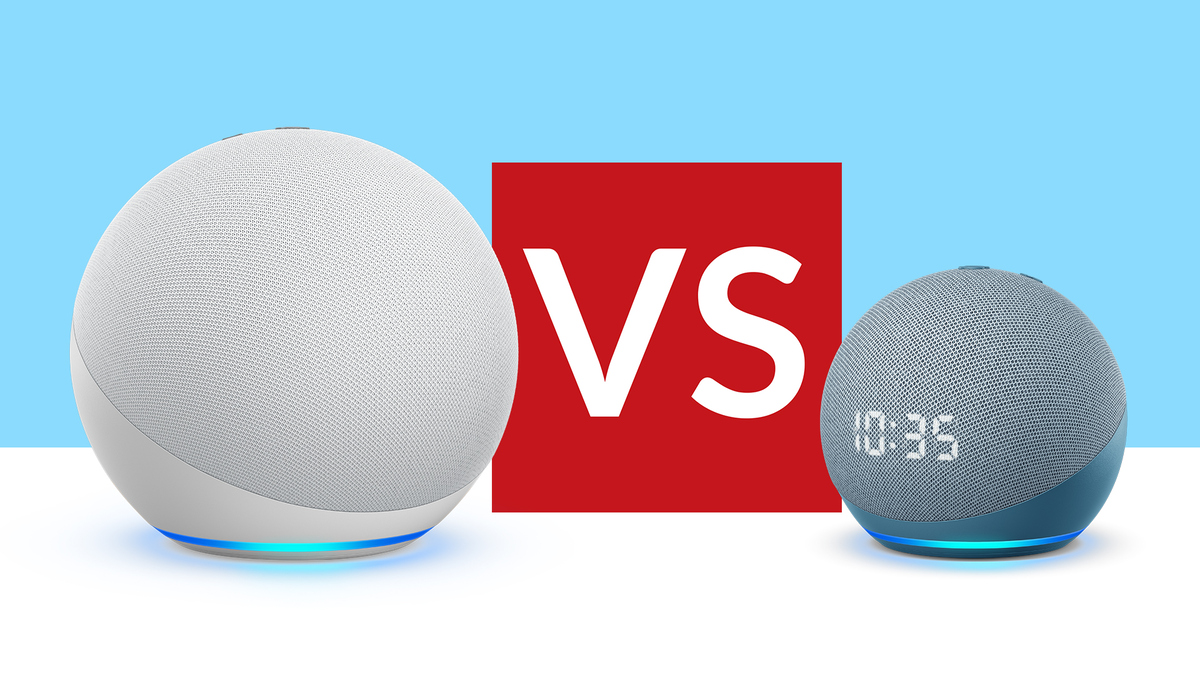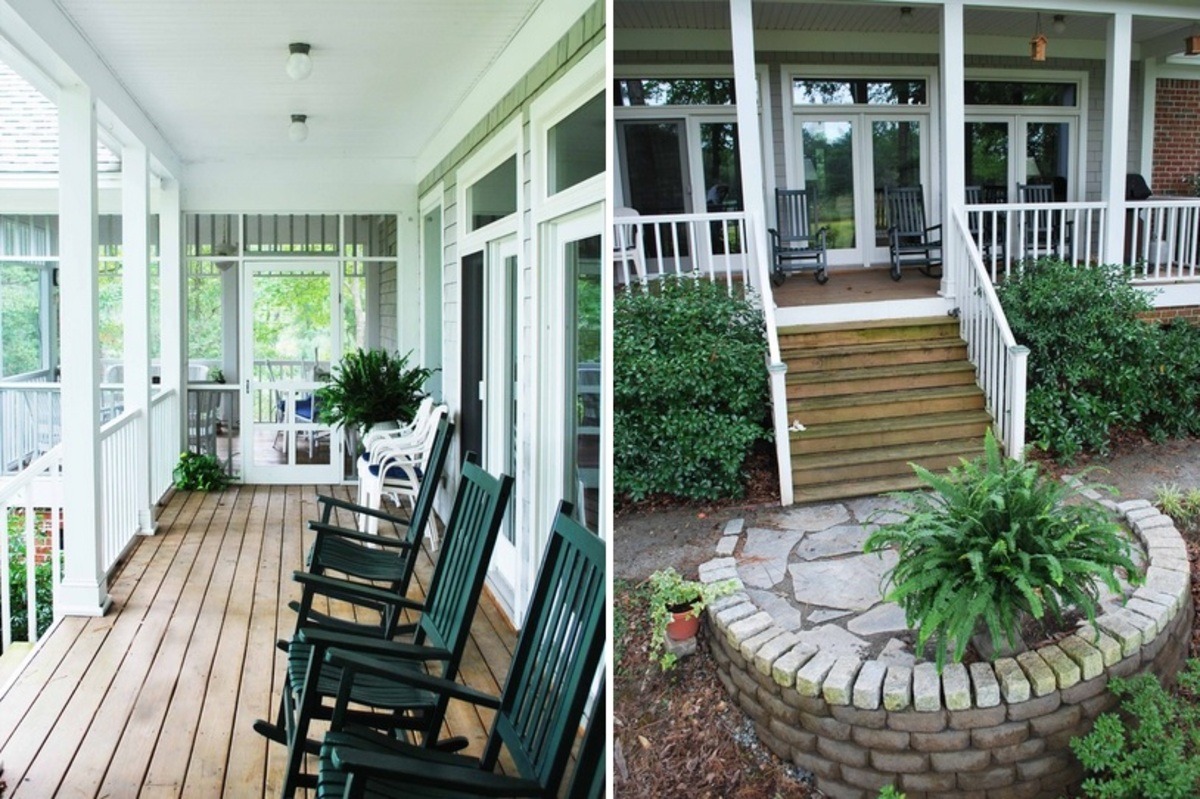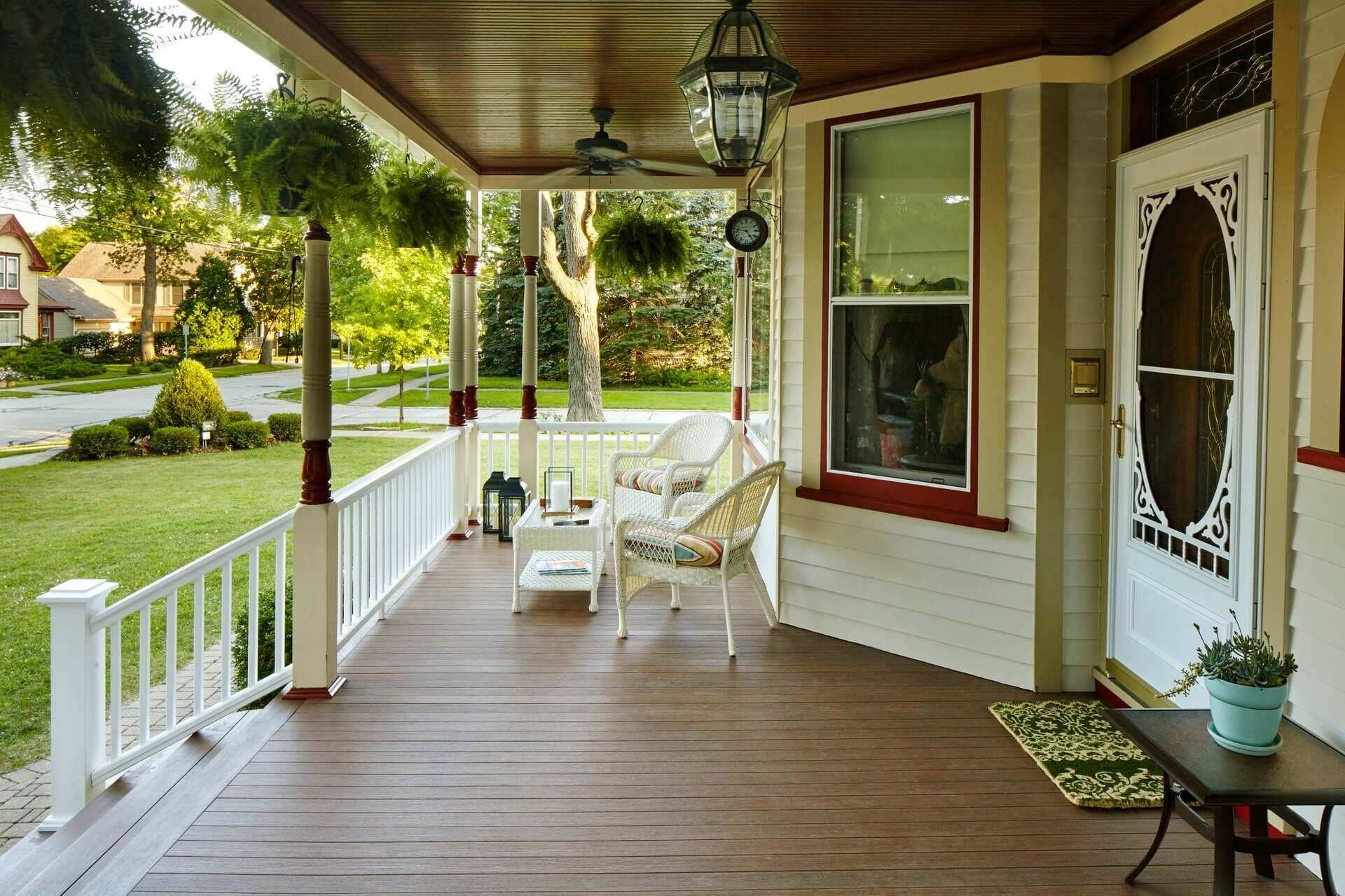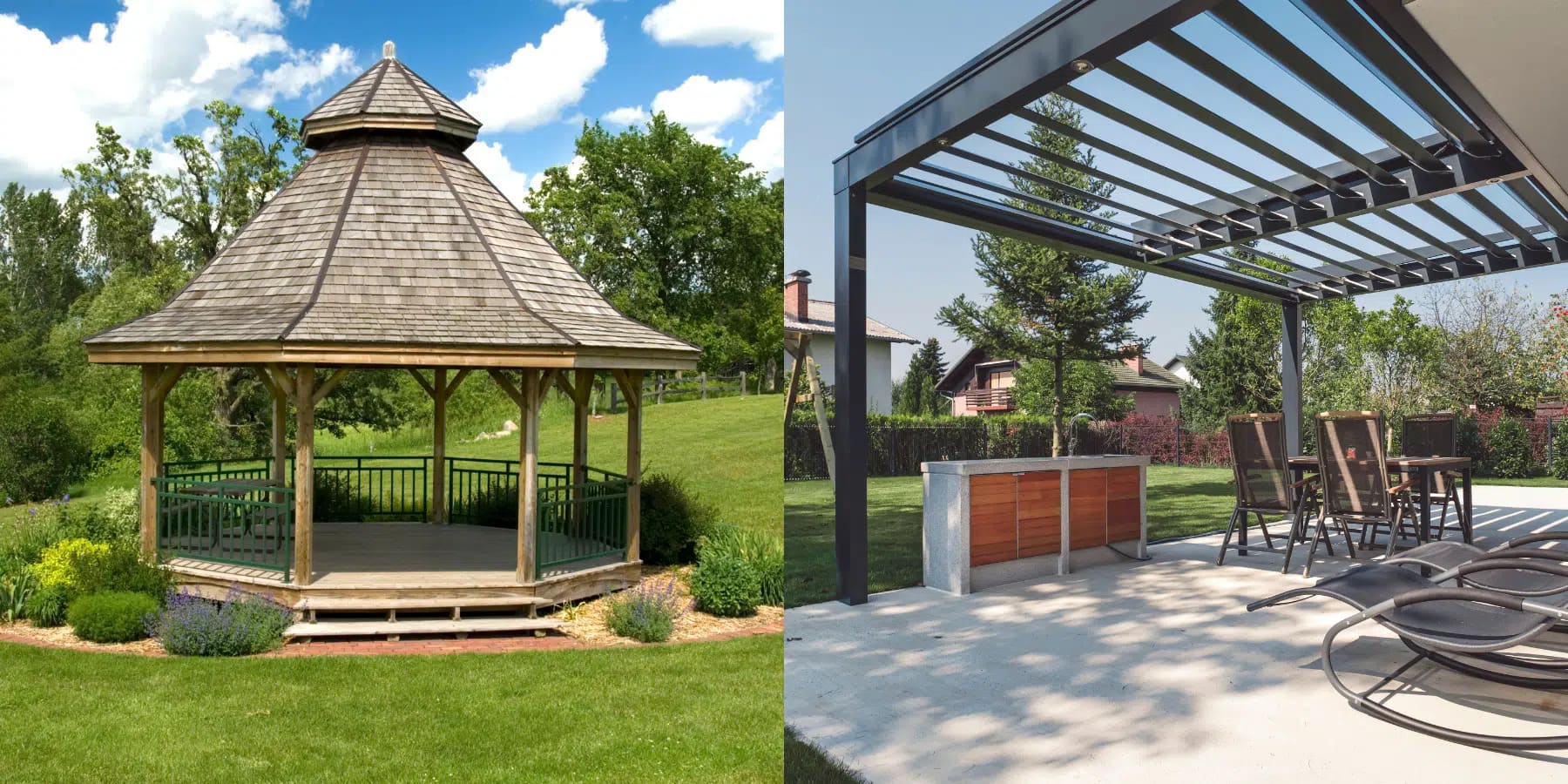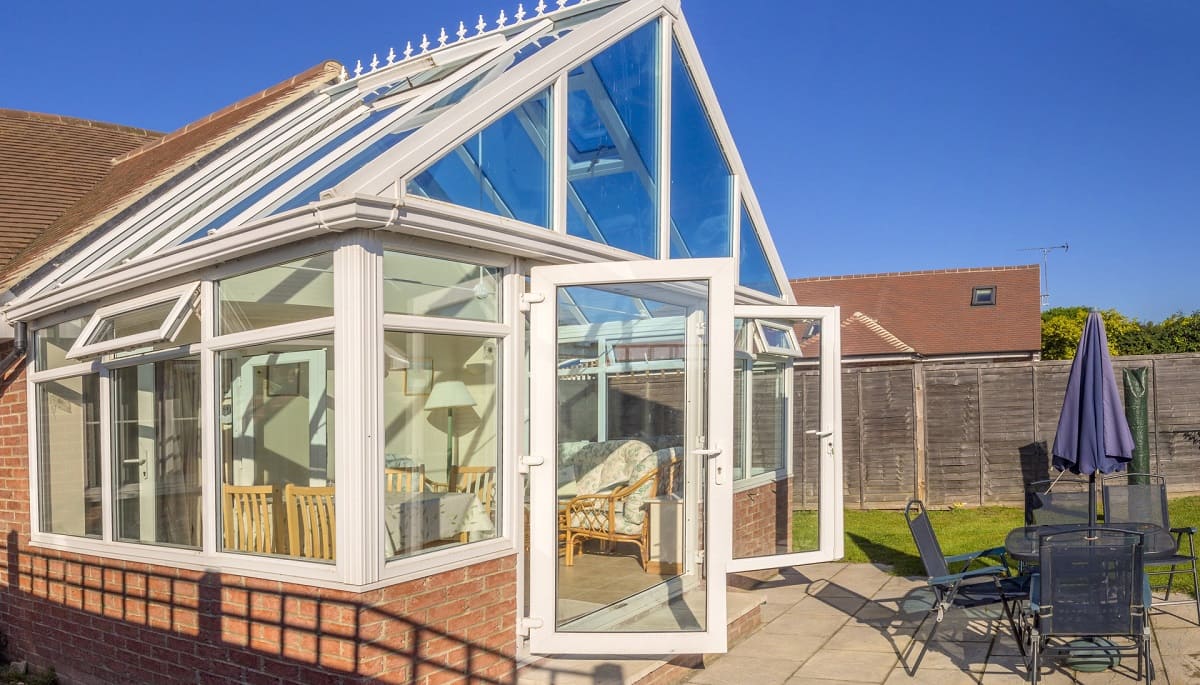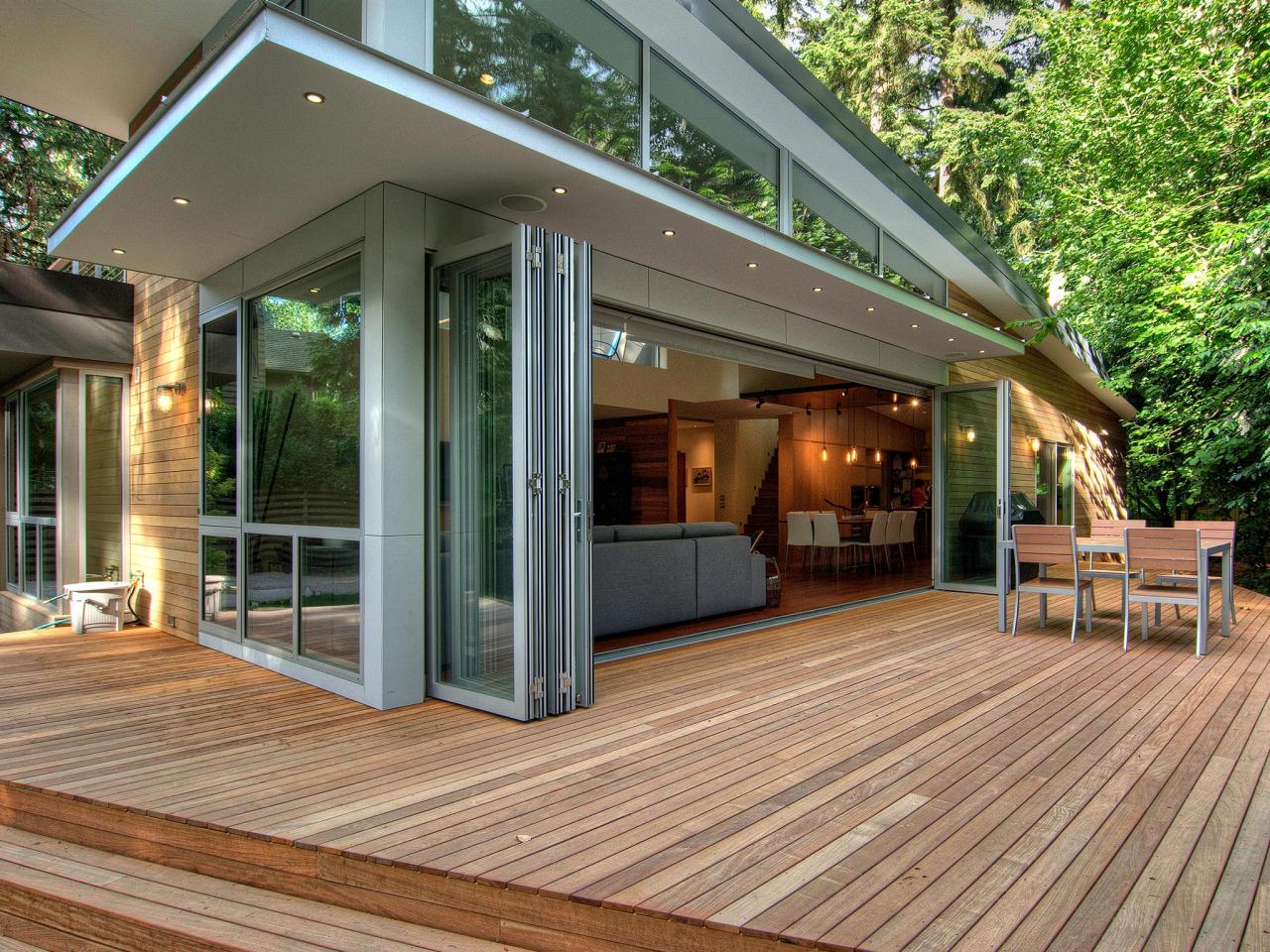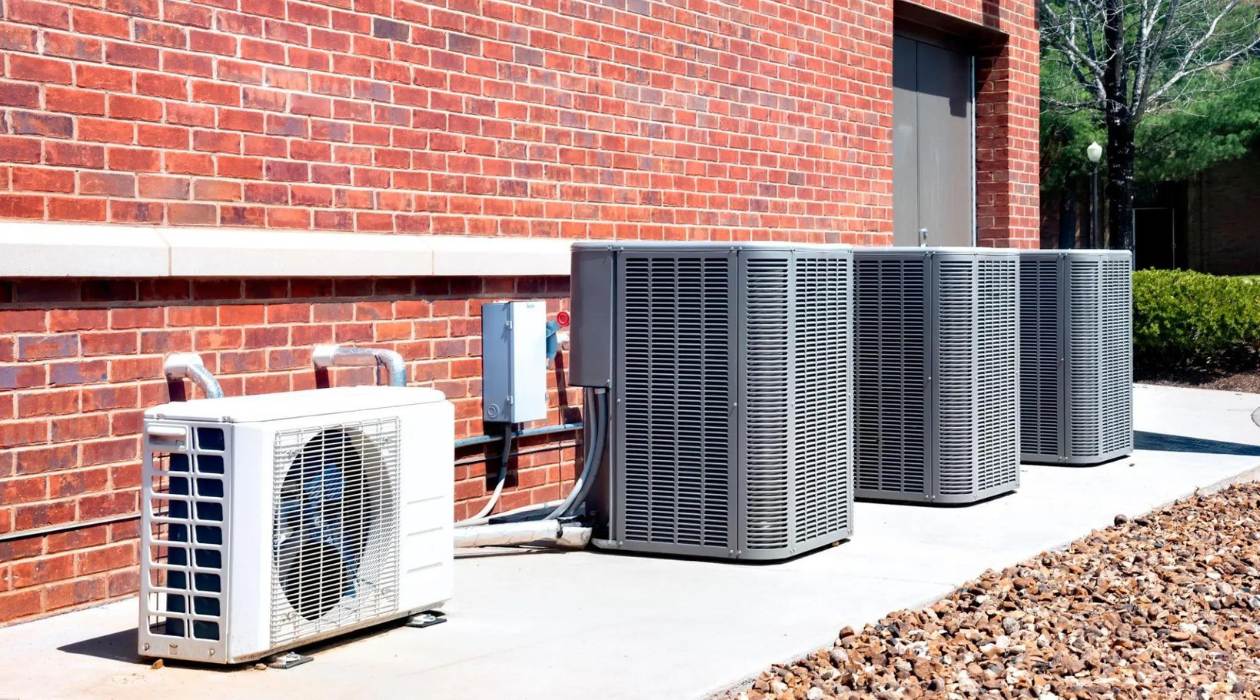Home>Home Maintenance>What Is The Difference Between A Heat Pump And An Air Conditioner
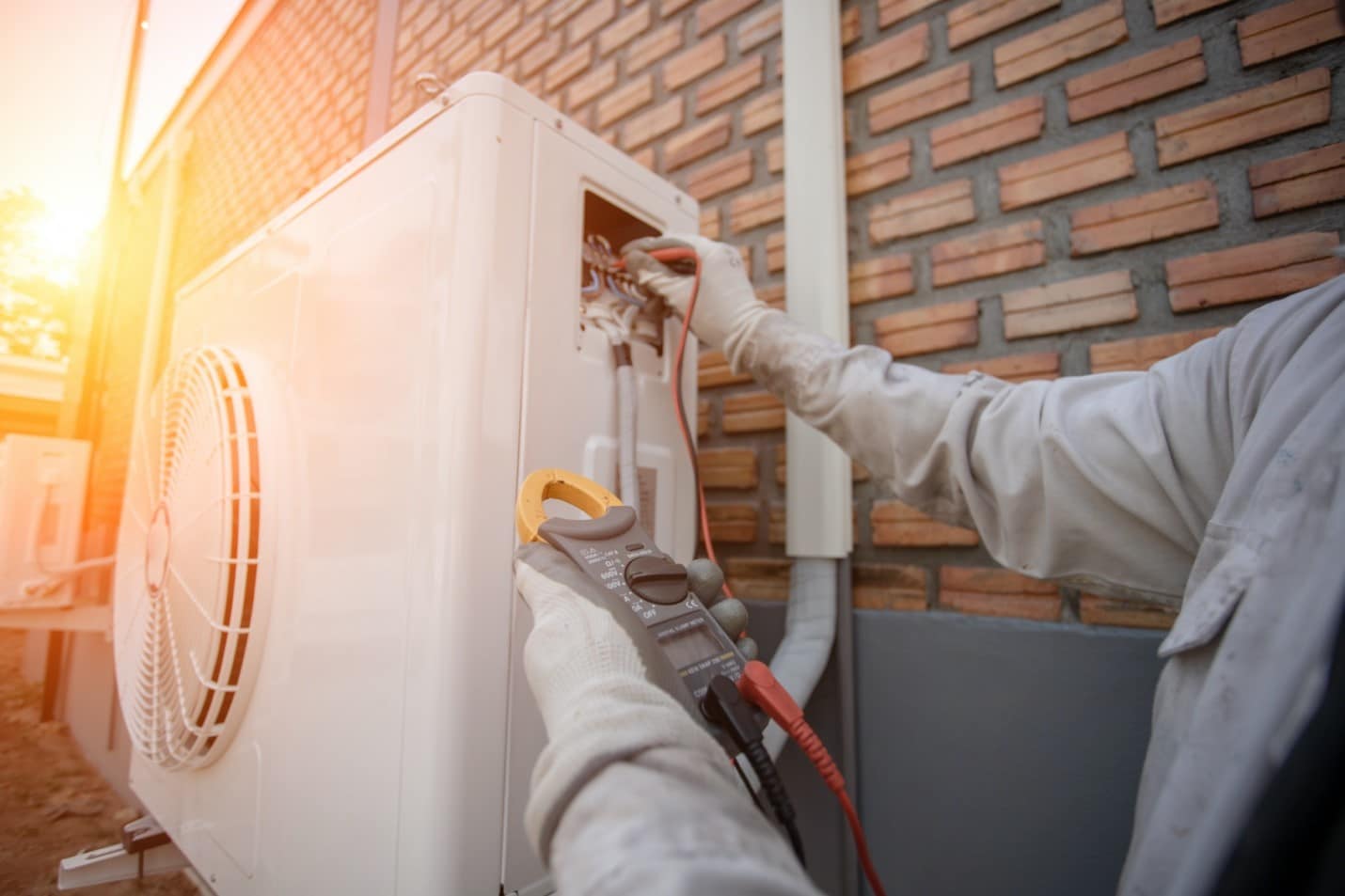

Home Maintenance
What Is The Difference Between A Heat Pump And An Air Conditioner
Modified: March 7, 2024
Learn the key differences between a heat pump and an air conditioner for effective home maintenance. Choose the ideal cooling and heating solution for your needs.
(Many of the links in this article redirect to a specific reviewed product. Your purchase of these products through affiliate links helps to generate commission for Storables.com, at no extra cost. Learn more)
Introduction
Welcome to our guide on the difference between a heat pump and an air conditioner. When it comes to home maintenance, understanding the different types of heating and cooling systems available is essential. The terms “heat pump” and “air conditioner” are often used interchangeably, but they are not the same thing. In this article, we will delve into the basics of heat pumps and air conditioners, explore their differences in functionality, energy efficiency, cost, and environmental impact, and discuss their respective applications and uses.
Heat pumps and air conditioners are both types of cooling systems used to regulate indoor temperature and maintain comfort in homes and buildings. They work by removing heat from the indoor space and expelling it outside. However, the main difference between the two lies in their functionality.
A heat pump is a versatile system that can provide both heating and cooling. It utilizes refrigerant to cool the indoor space during hot weather and reverses the refrigeration cycle to provide warmth during colder months. This means that a heat pump can act as an air conditioner in the summer and as a heater in the winter. It offers year-round climate control, making it a popular choice for homeowners looking for a single system to address all their heating and cooling needs.
On the other hand, an air conditioner is specifically designed to cool the indoor space. It uses refrigerant to absorb heat from the indoor air and releases it outside, leaving the room cool and comfortable. Unlike a heat pump, an air conditioner does not have the capability to provide heating during the colder months. Therefore, it is solely used for cooling purposes.
In the next sections of this guide, we will explore the differences between heat pumps and air conditioners in terms of functionality, energy efficiency, cost, environmental impact, applications, and uses. By understanding these distinctions, you can make informed decisions when it comes to choosing the right system for your home or building.
Key Takeaways:
- Heat pumps provide both heating and cooling, making them versatile and energy-efficient. They use renewable energy sources, reducing utility bills and environmental impact.
- Air conditioners are designed solely for cooling and may have lower upfront costs. However, heat pumps offer long-term savings and year-round comfort for homes and buildings.
Heat Pump Basics
A heat pump is a heating and cooling system that transfers heat from one place to another. It operates on the principle of thermodynamics, using a refrigerant to absorb heat from the indoor air and transfer it outside to cool the space. However, what sets a heat pump apart from other cooling systems is its ability to reverse the refrigeration cycle and provide warmth during colder months.
Heat pumps come in different types, including air-source heat pumps, ground-source (geothermal) heat pumps, and water-source heat pumps. Air-source heat pumps extract heat from the outdoor air, while ground-source heat pumps utilize the stable temperature of the ground or water as a heat source. These renewable energy sources make heat pumps an environmentally friendly choice for heating and cooling.
So how does a heat pump provide both cooling and heating? During the cooling mode, the heat pump absorbs heat from the indoor air and releases it outside, resulting in a cool and comfortable indoor environment. On the other hand, during the heating mode, the refrigeration cycle is reversed, and the heat pump absorbs heat from the outdoor air (even in cold temperatures) and transfers it indoors, providing warmth.
Heat pumps are known for their energy efficiency. Compared to traditional heating systems like furnaces or boilers that generate heat, heat pumps simply transfer heat from one place to another. This means they require less energy to provide the same level of heating or cooling, resulting in lower energy consumption and reduced utility bills. In fact, heat pumps can be up to three times more energy-efficient than electric resistance heating systems.
One of the key advantages of heat pumps is their ability to provide consistent indoor comfort throughout the year. Since they can both cool and heat, homeowners no longer need separate systems for summer and winter. This convenience and versatility make heat pumps a popular choice in moderate climates where temperatures don’t reach extreme highs or lows.
In the next sections, we will explore the basics of air conditioners and delve deeper into the differences between heat pumps and air conditioners in terms of functionality, energy efficiency, cost, and environmental impact. Understanding these distinctions will help you determine which system is best suited for your specific needs and preferences.
Air Conditioner Basics
An air conditioner is a cooling system that is designed to regulate indoor temperature and provide a comfortable environment during hot weather. It works by removing heat from the indoor air and releasing it outside, resulting in a cool and refreshing atmosphere indoors.
There are different types of air conditioners available, including window units, split systems, and central air conditioning systems. Window units are self-contained and installed in a window or a hole in the wall. Split systems have an indoor unit and an outdoor unit, connected by refrigerant lines. Central air conditioning systems are more complex and provide cooling to an entire building, with cooled air distributed through ductwork.
The basic functioning of an air conditioner involves the use of a refrigerant. The refrigerant absorbs heat from the indoor air, and as it passes through the evaporator coil, it evaporates, absorbing even more heat and lowering the temperature of the air. The cooled air is then circulated back into the room, while the absorbed heat is released outside through the condenser coil and fan.
Unlike heat pumps, air conditioners do not have the ability to provide heating. They are solely designed for cooling purposes. When the weather heats up, an air conditioner becomes a vital appliance in maintaining indoor comfort and reducing humidity levels.
Energy efficiency is an important consideration when it comes to air conditioners. In recent years, there have been significant advancements in technology, resulting in more energy-efficient models. Look for air conditioners with a high SEER (Seasonal Energy Efficiency Ratio) rating, as this indicates greater energy efficiency and lower operating costs.
Additionally, proper installation and maintenance are crucial for optimizing the performance and energy efficiency of an air conditioner. Regular cleaning of filters, ensuring proper insulation and sealing of ductwork, and scheduling professional maintenance can all contribute to the overall efficiency and longevity of your cooling system.
Now that we have covered the basics of air conditioners, we will explore the differences between air conditioners and heat pumps in terms of functionality, energy efficiency, cost, environmental impact, applications, and uses. This knowledge will help you make an informed decision when selecting the most suitable system for your home or building’s cooling and heating needs.
Differences in Functionality
While both heat pumps and air conditioners are used for cooling, there are significant differences in terms of their functionality.
Heat pumps, as mentioned earlier, have the unique ability to provide both cooling and heating. They can extract heat from the outdoor air (even in cold temperatures) and transfer it indoors to provide warmth during colder months. This means that a heat pump can be used year-round to maintain a comfortable indoor environment. Whether you need to cool your home in the summer or heat it in the winter, a heat pump can do it all.
On the other hand, air conditioners are specifically designed for cooling purposes only. They remove heat from the indoor air and expel it outside, resulting in a cooler and more pleasant indoor environment during hot weather. However, air conditioners do not have the capability to provide heating, so they are not suitable for use during colder months when heating is required.
This functional difference makes heat pumps a more versatile option for homeowners, especially those in regions with mild to moderate climates. With a heat pump installed, there is no need for a separate heating system, as the heat pump can adequately provide both cooling and heating throughout the year.
It’s important to note that the effectiveness of a heat pump’s heating function can be affected by extreme low temperatures. In very cold climates, a supplemental heating source, such as electric resistance heating or a gas furnace, may be necessary to assist the heat pump during extremely low outdoor temperatures.
As for air conditioners, their main purpose is to cool indoor spaces, delivering relief during hot summer months. They do not have the capability to provide heating, so in regions with cold winters, a separate heating system will be needed alongside the air conditioner.
In summary, while both heat pumps and air conditioners can cool indoor spaces effectively, the key difference lies in their functionality. Heat pumps offer the advantage of providing both cooling and heating, making them a more versatile choice for year-round comfort. On the other hand, air conditioners are solely designed for cooling and require a separate heating system for the colder months.
Energy Efficiency Comparison
Energy efficiency is an important factor to consider when choosing between a heat pump and an air conditioner. Let’s compare the energy efficiency of these two systems to help you make an informed decision.
Heat pumps are known for their exceptional energy efficiency. They operate by transferring heat from one place to another, rather than generating heat like traditional heating systems. This means that they can provide the same level of heating or cooling while using significantly less energy. In fact, heat pumps can be up to three times more energy-efficient than electric resistance heating systems.
The energy efficiency of a heat pump is expressed by its Heating Seasonal Performance Factor (HSPF) for heating and its Seasonal Energy Efficiency Ratio (SEER) for cooling. These ratings provide a measure of how effectively the system converts electrical energy into heating or cooling output. The higher the HSPF or SEER rating, the more efficient the heat pump.
On the other hand, air conditioners have improved in energy efficiency over the years but tend to be less efficient than heat pumps. Air conditioner efficiency is measured by the SEER rating, with higher SEER ratings indicating greater efficiency. Modern air conditioners can have SEER ratings ranging from 13 to 25, with higher SEER rated models being more energy-efficient.
It’s important to note that the energy efficiency of both heat pumps and air conditioners can be affected by various factors such as system size, insulation, ductwork, and regular maintenance. Proper installation by a qualified professional and regular servicing can optimize the efficiency and performance of either system.
In terms of overall energy consumption, heat pumps have a distinct advantage. Since they provide both heating and cooling, homeowners can avoid the need for separate systems and save on energy costs. In comparison, an air conditioner alone cannot provide heating and may require a secondary heating source, leading to increased energy usage.
Additionally, heat pumps make use of renewable energy sources, such as the heat in the outdoor air or ground, to supply heating or cooling. This adds to their overall energy efficiency and reduces reliance on non-renewable energy sources.
When it comes to energy efficiency, heat pumps have the upper hand over air conditioners, providing year-round efficient heating and cooling. The ability to reduce energy consumption and lower utility bills makes heat pumps an attractive option for many homeowners.
A heat pump can both heat and cool your home, while an air conditioner can only cool. If you live in a moderate climate, a heat pump can be more energy efficient.
Cost Comparison
Cost is an important consideration when deciding between a heat pump and an air conditioner. Let’s compare the costs associated with these two systems to help you determine which one is more suitable for your budget.
When it comes to upfront costs, air conditioners generally have a lower initial investment compared to heat pumps. Air conditioning systems are simpler and consist of fewer components, resulting in lower equipment costs. However, keep in mind that the cost can vary depending on the type and size of the air conditioner you choose.
On the other hand, heat pumps tend to have higher upfront costs due to their added functionality and complexity. Heat pumps require additional components and technology to facilitate both heating and cooling operations. The cost can also be influenced by factors such as system size, brand, and energy efficiency rating.
Although heat pumps may have a higher initial cost, they can offer long-term savings on energy bills. As mentioned earlier, heat pumps are highly energy-efficient, meaning they use less electricity compared to traditional heating systems. The energy savings can help offset the initial investment over time.
It’s also important to consider the potential cost savings of having a single system that provides both heating and cooling. With a heat pump, there is no need for separate heating and cooling systems, reducing installation and maintenance costs associated with multiple units. This can be a significant advantage for homeowners looking to consolidate their HVAC systems.
When it comes to operational costs, heat pumps generally have lower ongoing expenses compared to air conditioners. The energy efficiency of heat pumps translates into reduced electricity consumption and lower utility bills. In contrast, air conditioners can consume more electricity, especially during hot summer months, which can result in higher monthly expenses.
It’s worth noting that the cost comparison between heat pumps and air conditioners can vary depending on factors such as local climate, energy prices, and individual usage patterns. It’s always a good idea to consult with a heating and cooling professional to assess your specific needs and obtain accurate cost estimates.
In summary, while air conditioners may have a lower initial investment, heat pumps can offer long-term savings on energy bills. The ability of heat pumps to provide both heating and cooling can also lead to cost savings associated with consolidating HVAC systems. Ultimately, your choice will depend on your budget, energy efficiency goals, and specific heating and cooling requirements.
Environmental Impact Comparison
Considering the environmental impact of your cooling system is important for those seeking eco-friendly options. Let’s compare the environmental impact of heat pumps and air conditioners to help you make an environmentally conscious decision.
Heat pumps are renowned for their low environmental impact. They are designed to transfer heat rather than generate it, resulting in significantly lower energy consumption compared to traditional heating systems. By utilizing renewable energy sources such as the heat in the outdoor air or ground, heat pumps help reduce reliance on fossil fuels, leading to a reduction in greenhouse gas emissions. This makes them a more sustainable choice for heating and cooling.
Furthermore, heat pumps can contribute to reducing carbon footprints when powered by renewable energy sources such as solar or wind energy. By using this combination, you can effectively eliminate or greatly minimize the emissions associated with heating and cooling your home.
On the other hand, air conditioners are not as environmentally friendly as heat pumps. Air conditioners require a significant amount of electricity to power their cooling operation, which can lead to increased greenhouse gas emissions if the electricity is sourced from fossil fuel-based power plants. However, advancements in technology have resulted in more energy-efficient air conditioner models, which can help reduce their environmental impact.
When choosing an air conditioner, it’s important to look for units with high SEER (Seasonal Energy Efficiency Ratio) ratings, as these indicate greater energy efficiency and lower environmental impact. Air conditioners with higher SEER ratings consume less electricity, resulting in reduced energy consumption and lower emissions.
It’s worth mentioning that environmental impact comparison can also vary depending on the region and energy sources available. In areas where renewable energy is prevalent, both heat pumps and air conditioners can be operated with minimal environmental impact by utilizing clean energy sources.
To further reduce the environmental impact of your cooling system, regular maintenance is important. Well-maintained systems operate more efficiently, maximizing energy savings and minimizing waste. Regularly cleaning or replacing air filters, ensuring proper insulation and sealing of ductwork, and scheduling professional maintenance can all contribute to reducing energy consumption and protecting the environment.
In summary, heat pumps have a lower environmental impact compared to air conditioners. The energy efficiency of heat pumps and their ability to utilize renewable energy sources make them a more environmentally friendly choice for heating and cooling. However, choosing an energy-efficient air conditioner and utilizing renewable energy sources can help reduce the environmental impact associated with cooling systems.
Applications and Uses
Both heat pumps and air conditioners have various applications and uses depending on the specific needs and requirements of different spaces. Let’s explore the common applications of these two systems.
Heat pumps are versatile and well-suited for a range of applications. They are commonly used in residential settings to provide both heating and cooling to individual homes or apartments. With the ability to extract heat from the outdoor air or ground, heat pumps are ideal for moderate climates where temperature fluctuations are less extreme.
Heat pumps are also popular in commercial buildings, such as offices, retail spaces, and educational facilities. They can efficiently maintain comfortable indoor environments throughout the year, catering to the needs of employees, customers, and students. Additionally, heat pumps are commonly used in hotels, hospitals, and other institutions where consistent climate control is crucial.
In regions with colder climates, heat pumps may require supplemental heating during extreme low temperatures. In such cases, a secondary heating source, such as electric resistance heating or a gas furnace, can be added to the system to provide additional warmth when needed.
On the other hand, air conditioners are primarily used for cooling purposes. They are commonly found in residential homes, apartment complexes, and buildings where the primary need is to combat hot weather conditions. Air conditioners can provide relief and comfort during scorching summers, maintaining an optimal temperature and humidity level indoors.
Air conditioners are also extensively used in commercial and industrial settings, including offices, retail stores, restaurants, hotels, data centers, and manufacturing facilities. They help create comfortable and productive working environments for employees and ensure the preservation of perishable goods in commercial establishments.
One particular use of air conditioning is in server rooms and data centers. These spaces generate a significant amount of heat due to the continuous operation of computer servers. Air conditioning systems are essential to dissipate heat and prevent equipment overheating, which can lead to system failure and damage.
It’s important to note that the choice between a heat pump and an air conditioner depends on the specific needs of the space and the desired functionality. Heat pumps are a preferred choice when year-round heating and cooling are required, while air conditioners are suitable when cooling alone is sufficient.
In summary, heat pumps are versatile and commonly used in residential and commercial settings where both heating and cooling are needed. Air conditioners, on the other hand, are primarily used for cooling and are prevalent in various residential, commercial, and industrial applications.
Conclusion
Choosing between a heat pump and an air conditioner depends on several factors including functionality, energy efficiency, cost, environmental impact, and specific applications. Let’s recap the key points to help you make an informed decision.
Heat pumps offer the advantage of providing both cooling and heating, making them a versatile option for year-round comfort. They are highly energy-efficient, utilizing renewable energy sources to transfer heat rather than generating it, resulting in lower energy consumption and reduced utility bills. Heat pumps are suitable for residential and commercial applications, especially in moderate climates where temperature fluctuations are not extreme.
On the other hand, air conditioners are designed for cooling purposes only and do not provide heating. While they may have a lower initial cost compared to heat pumps, they tend to be less energy-efficient. However, advancements in technology have resulted in more energy-efficient air conditioner models, helping to reduce their environmental impact. Air conditioners are commonly used in residential, commercial, and industrial settings to combat hot weather conditions and create comfortable indoor environments.
When considering the environmental impact, heat pumps have a lower carbon footprint compared to air conditioners. Heat pumps utilize renewable energy sources and can be powered by clean energy, reducing greenhouse gas emissions. However, choosing an energy-efficient air conditioner and utilizing renewable energy sources can also minimize the environmental impact associated with cooling systems.
Cost is another crucial factor to consider. Heat pumps generally have a higher upfront cost due to their added functionality, but they offer long-term savings on energy bills. Air conditioners have a lower initial investment but may have higher monthly operational costs. The choice depends on your budget, energy efficiency goals, and specific heating and cooling requirements.
In conclusion, both heat pumps and air conditioners have their unique advantages and applications. Heat pumps are a versatile and energy-efficient option that provides both heating and cooling, making them suitable for year-round comfort. Air conditioners are primarily used for cooling and are more budget-friendly, but they may require a separate heating system in colder climates. Assess your specific needs, consider the factors discussed, and consult with a heating and cooling professional to determine the best system for your home or building.
Frequently Asked Questions about What Is The Difference Between A Heat Pump And An Air Conditioner
Was this page helpful?
At Storables.com, we guarantee accurate and reliable information. Our content, validated by Expert Board Contributors, is crafted following stringent Editorial Policies. We're committed to providing you with well-researched, expert-backed insights for all your informational needs.
